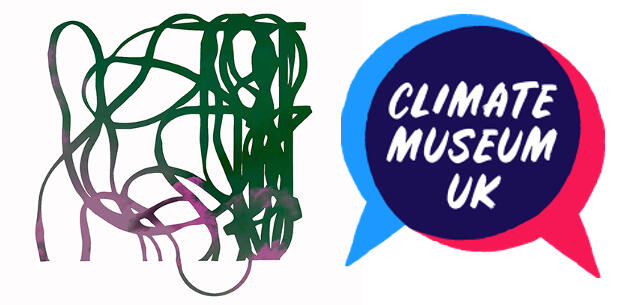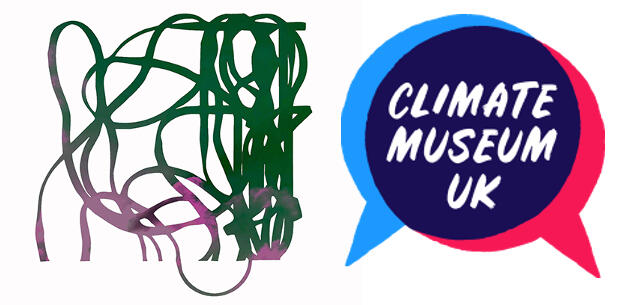
Ecologies in Practice
Arts education practice research for addressing climate change
Ecologies in Practice is a gathering of ongoing practice research projects developed by the Centre for Arts and Learning with UK and international partnership organisations. This strand of research started in 2021 with a range of symposia including international speakers. In 2022-23 CAL and Climate Museum UK were awarded AHRC networking funding to research how a range of arts methods could enable young people to express their voices and feelings about what can be called ‘the Earth Crisis’. This project also aimed to share empowering information about the causal factors of climate change, and about the interdependency of humans and other-than-humans - such as the animal and plant species on Earth.
This website presents the findings of the 2022-23 project and also links to subsequent developments including: schools’ resources to download; linked developments by CAL-CMUK practice researchers to download; information about CAL’s international Ecologies in Practice partnership projects from 2024, and a link to the forthcoming book Ecologies in Practice and Learning: Arts Interventions in the Earth Crisis (2025) – which includes an Open Access chapter about the findings of the CAL-CMUK 2022-23 project.
About
Ecologies in Practice collaborative practice research projects began with initiatives developed by Centre for Arts and Learning and Climate Museum UK in 2022-23, with school and university students. To engage and empower youth voice, students and their teachers from five schools in London were invited to explore Ecologies in Practice through participatory arts methods. The Centre for Arts and Learning (CAL) at Goldsmiths, University of London, Climate Museum UK and further UK and international partners such as TheatrEX Bangladesh are looking at the ways in which ecological arts practice and learning approaches can relate to changes in the environment, and to innovative interdisciplinary arts processes.
The purpose of the 2022-23 CAL-CMUK project was to research how arts practice can enable young people to find their own ways of expressing themselves around the issues involved in the Earth Crisis. These issues include climate change, climate injustice, loss of biodiversity, extractivist processes, and pollution of the waters and the air. The project intended to explore how meaning making that is created in material and discursive arts practice can release eco-anxieties into productive outlets. These outlets are presented on this website in the artworks, creative texts and performances made by young people, with the assistance of arts practice researchers.
The research team aimed to find ways of assisting young people to build on their initial experiences of focused expressive practice, with a view to enabling their continuing creative interventions in the Earth Crisis. Students aged 14-18 were invited to participate in a workshop, that included a visit to the Goldsmiths campus. This project also aimed to help young people acclimatise to university cultures and environments. CAL and CMUK Ecologies in Practice set out to resource young participants with arts methods for engaging peers with evidence about central issues in the Earth Crisis. Arts methods helped the young participants to explore the issues raised, as they connected with their own lived experience, and to evaluate potential solutions.
Find out more about how to connect with the resources and activities created in the CAL-CMUK 2022-2023 project, developments by the practice research team since 2023, and the CAL-TheatrEX 2025 project in our Creative Methods section, browse our workshop videos or take a look at our free learning resources library.
Creative Research Methods
Participants experienced three creative practice research methods for self-expression around the causal factors of climate change. These methods were: 1) dialogue around art, or ‘dialogic’, objects created in response to the collections of Climate Museum UK, 2) sound and movement created in response to listening exercises and playful learning activities, and 3) focused, expressive drawing and writing for emotive and empathic connections.
Dialogic Objects
Kimberley Foster and Bridget McKenzie led the Dialogic Objects activity.
They invited participants to find and map associations around their choices of objects from Bridget’s handling collection, part of Climate Museum UK’s resources. Then, having created dialogue around free and expanded interpretation of objects, they mapped their own meanings around artworks commissioned for this project, made by Kimberley. They were able to handle these objects, which combine and add to CMUK’s found objects. Reflective discussion drew out the participants’ responses in relation to environmental themes, in particular making visible what is often hidden in the impacts of consumer objects.
Sound and Movement
Led by Kevin Campbell Davidson and Tom Mansfield.This workshop uses listening and movement-based arts methods to raise awareness of the broader life systems which humans are part of. Participants are encouraged to express their ideas about interconnectedness and ecological thinking from the viewpoint, ‘Remember, you ARE nature’, connecting with Tom Mansfield’s, Cards for Life. You can download a free sample of Cards for Life from the Resources area.
Drawing and Writing
Ecological arts methods in drawing and writing have been developed by Dr Miranda Matthews and Dr Francis Gilbert. Miranda and Francis have led drawing and writing workshops for young people and for adults. They have also published co-authored articles about how free writing and drawing can access emotional and affective responses at times of crisis and difficulty. Miranda and Francis researched how drawing and writing can help young people who want to express themselves about the Earth Crisis. In the CAL and CMUK Ecologies in Practice workshops, young people aged 14-18 and undergraduate students were introduced to activities that use expressive drawing and writing, to release empathic, empowering creative responses.
Sharing Findings
CAL-CMUK Ecologies in Practice research (2022-23) found that it was important to facilitate immersive, creative, social spaces for participants to vocalise protest about the Earth Crisis, and to engage meaningfully with the issues involved. We also found that feelings of belonging in transitions to university cultures – whether at Goldsmiths or at other universities, increased among the young participants during the project’s development. The practice researchers continue to investigate how young people can take up arts practice research approaches, to develop their own ideas for eco-research through arts practice in current contexts. The research team continues to investigate and form collaborative analysis of how ecological arts practices and interventions can be made more accessible for young people in schools, community centres, and at museums. Ecologies in Practice research now builds bridges of learning and research exchange with international arts, learning and interdisciplinary collaborations.
UK and International Research Development
Since 2023 Ecologies in Practice researchers have developed further UK and international practice research and investigative qualitative research among diverse communities. Miranda Matthews - Director of CAL, Aminul Hoque MBE OBE and Sudip Chakroborthy - Director of TheatrEX Bangladesh are developing Theatre for Climate Justice Education in Bangladesh. There is some information about this project in our Climate Justice area. Climate Museum UK Director Bridget McKenzie regularly develops and updates ecological learning resources. See our Resources area to access useful recent CMUK resources. Kevin Davidson was awarded a Churchill Fellowship to visit Spain, Argentina and Finland in 2024-25, to explore how they integrate climate aware education. Here is a link to information about Kevin's fellowship research.
Theatre for Climate Justice Education
Dr Miranda Matthews worked with Dr Aminul Hoque and Dr Sudip Chakroborthy of TheatrEX Bangladesh in 2024-25, to develop interdisciplinary performing arts practice research focusing on empowering minoritised communities in Bangladesh for international climate justice awareness. You can view some of the creative outputs from this project in our Resources area.
This project set out to address strategic initiatives of supporting increased cultural and educational equality of opportunities, socio-economic development, and climate justice in Bangladesh. Theatre practice research workshops were co-created by Centre for Arts and Learning and TheatrEX Bangladesh. The theatre practitioners made exciting opportunities for inclusive expression of embodied voice.
The research investigated how performing arts practice and learning can assist more sustainable local and global environments, through three educational workshops in three districts of Bangladesh: Nabiganj, Sylhet and Dhaka. Workshop participation included representation from children and adults in regional communities, students, members of the Physically Challenged Development Foundation, performers with disabilities, people who identify as climate ‘social activists’ and manual workers.
Dr Miranda Matthews and Dr Aminul Hoque, researchers based in Education at Goldsmiths University of London, supported Dr Sudip Chakroborthy and TheatrEX practitioners, in developing workshop research questions, refining the questions between workshops, and generating themes to inform practice research. Performances created in the workshops were filmed and edited, producing 15 short films that are shared internationally. Sudip Chakroborthy says that these films, are 'the reflection of our workshop discussions/ story telling sessions’
Ecologies in Practice Researchers
Contact Us
Drop us a message through the form below or contact our researchers directly.
Resources
This is a free library of resources for researchers, artists, educators and students to use. Please recognise our projects and the climate awareness contexts these resources were created to connect with if you would like to resource your project with these outputs and materials. Do contact us get in touch if you are interested in finding out more about our methods and findings. We would be delighted to discuss Ecologies in Practice with you!Access our full resource library here or browse methods below.
Ecologies in Practice Workshop Guides
CAL-CMUK 2023
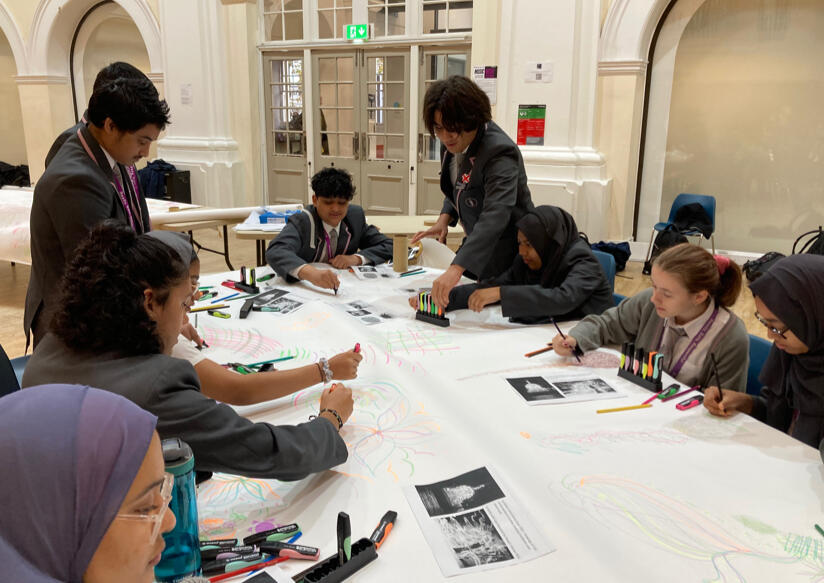
Group Leaders Guide - CAL-CMUK Ecologies in Practice
This will help you make the most of the workshop at Goldsmiths. The guide explains the activities you will experience and what you might do to prepare for the workshop. It also offers ideas for how to follow up afterwards.
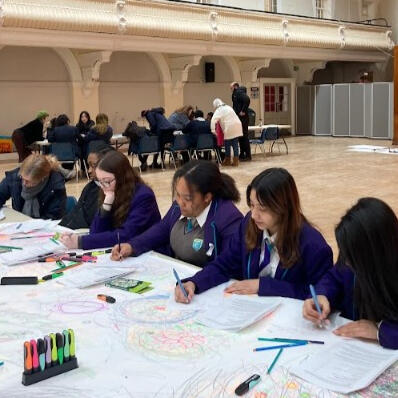
Expressive Drawing and Writing Resource
Sometimes people find it difficult to say what they feel about important issues such as the Earth Crisis and climate change. This resource introduces a way of combining drawing and writing to assist creative, vocal self-expression.
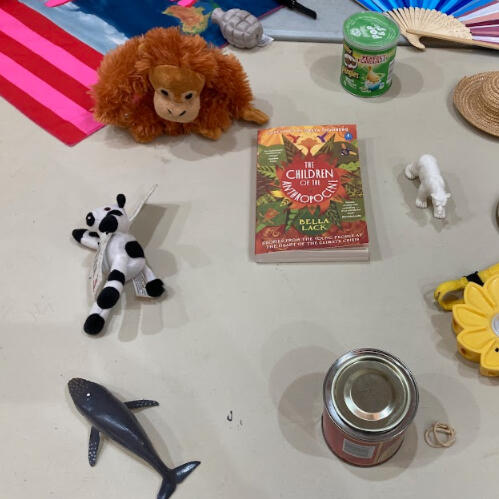
This resource offers some ideas on how you can run a workshop similar to those delivered by Kimberley Foster and Bridget McKenzie. It involves mapping meanings of both ordinary objects and artist-created objects to stimulate dialogue about environmental issues.
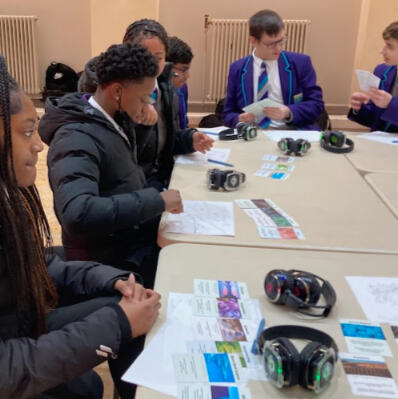
This offers some ideas on how you can run a workshop similar to those delivered by Kevin Davidson and Tom Mansfield. It includes movement and listening activities designed to stimulate dialogue and creative expression about environmental issues.
MORE Learning Resources
CAL, CMUK & TheatrEX Bangladesh, 2024-2025
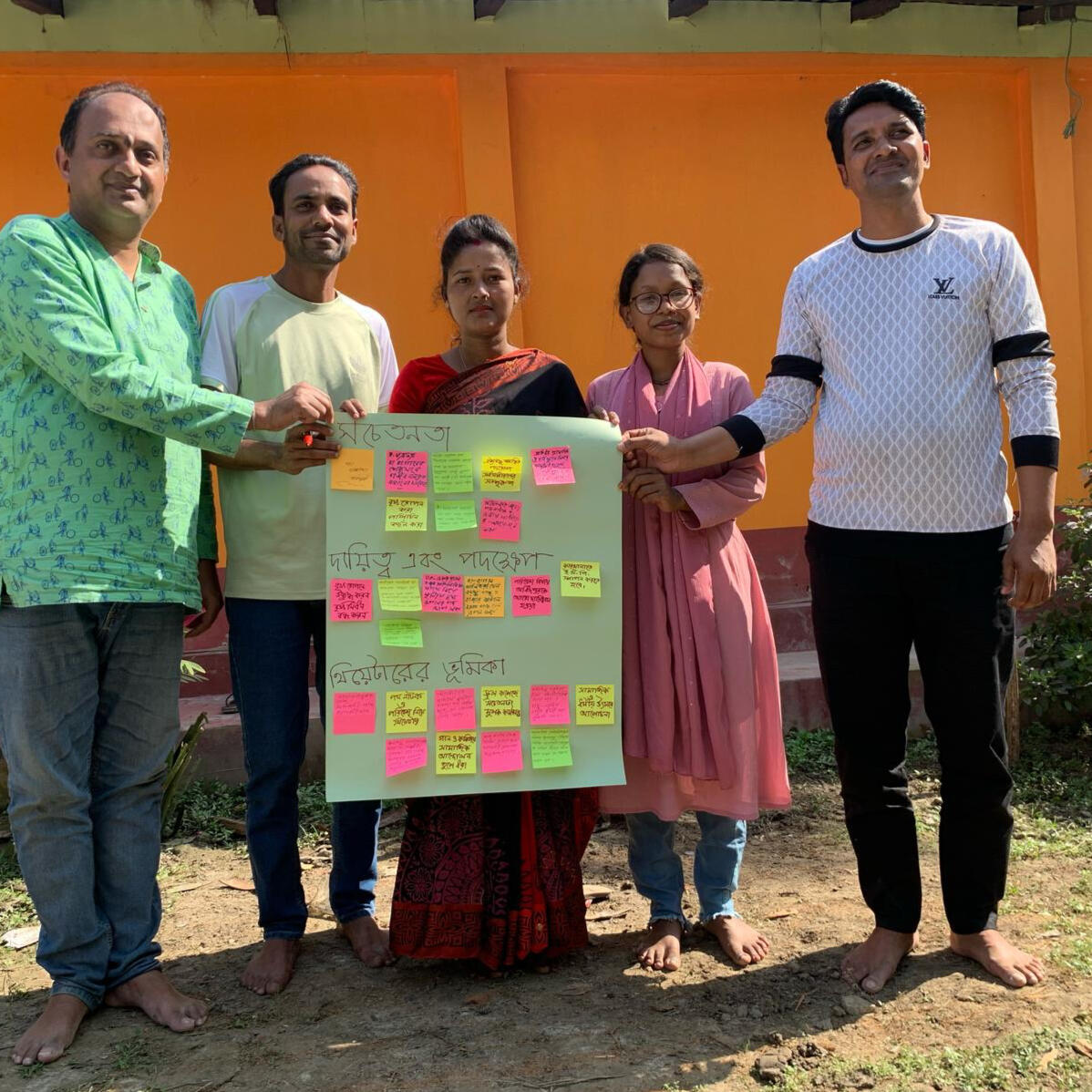
A sample playlist of Centre for Arts and Learning and TheatrEX Bangladesh Climate Justice films: short films relating to issues such as Rising Sea Levels, Deforestation and Air Pollution are available to view here. Feel free to show and discuss these films with learning groups - for climate justice arts education.
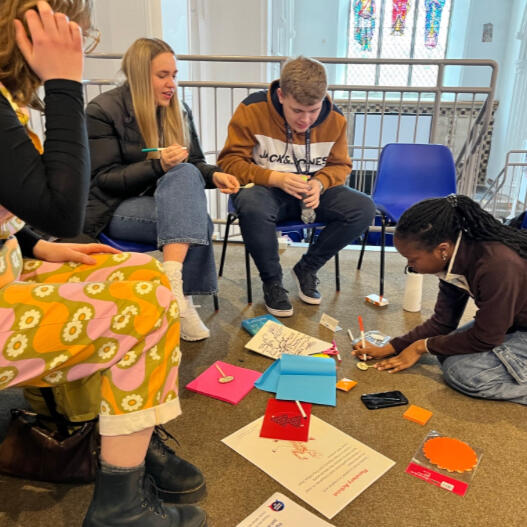
Climate Museum UK Learning Resources
Climate Museum UK has a Resources Page that is regularly updated with exciting learning activities. CMUK has also developed 8 creative workshops in the context of the Earth Crisis - made for the Norfolk and Norwich Festival Imagine Futures. Additionally CMUK has made a range of learning and teaching resources called Climate Education and Positive Action - with the South Downs National Park. CMUK has a community of practice called Earth Talk which hosts gatherings and offers a playbook of learning tools.
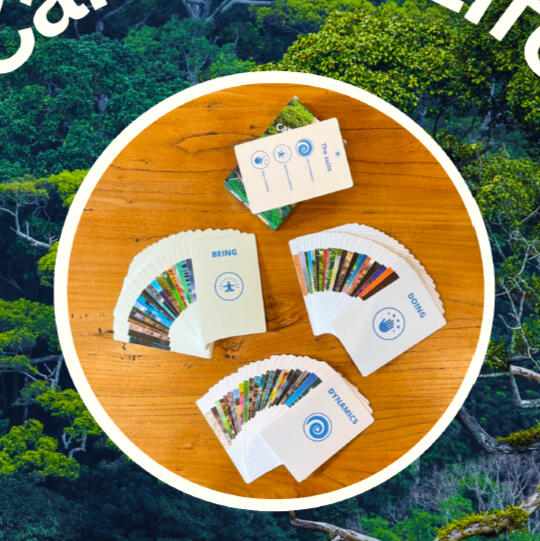
Here you can download a free sample of Cards for Life created by Tom Mansfield, for use in learning and teaching activities. For more information about the cards, and to find out how to 'adopt a pack' see this link to Tom Mansfield's Cards for Life site.
Acknowledgements
Centre for Arts and Learning, Climate Museum UK and TheatrEX Bangladesh practice researchers would like to thank all participants in workshops, focus groups and survey evaluations. The insights gathered in our UK and international projects are helping to make recommendations for how to address Earth Crisis issues with arts practice research in education. Our projects aim to enable more empowered creative youth voice, and inclusive voice of minoritised groups for climate justice in cultural, educational and academic international communities. We would also like to thank the Arts and Humanities Research Council and Goldsmiths, University of London, for enabling this research to happen.
